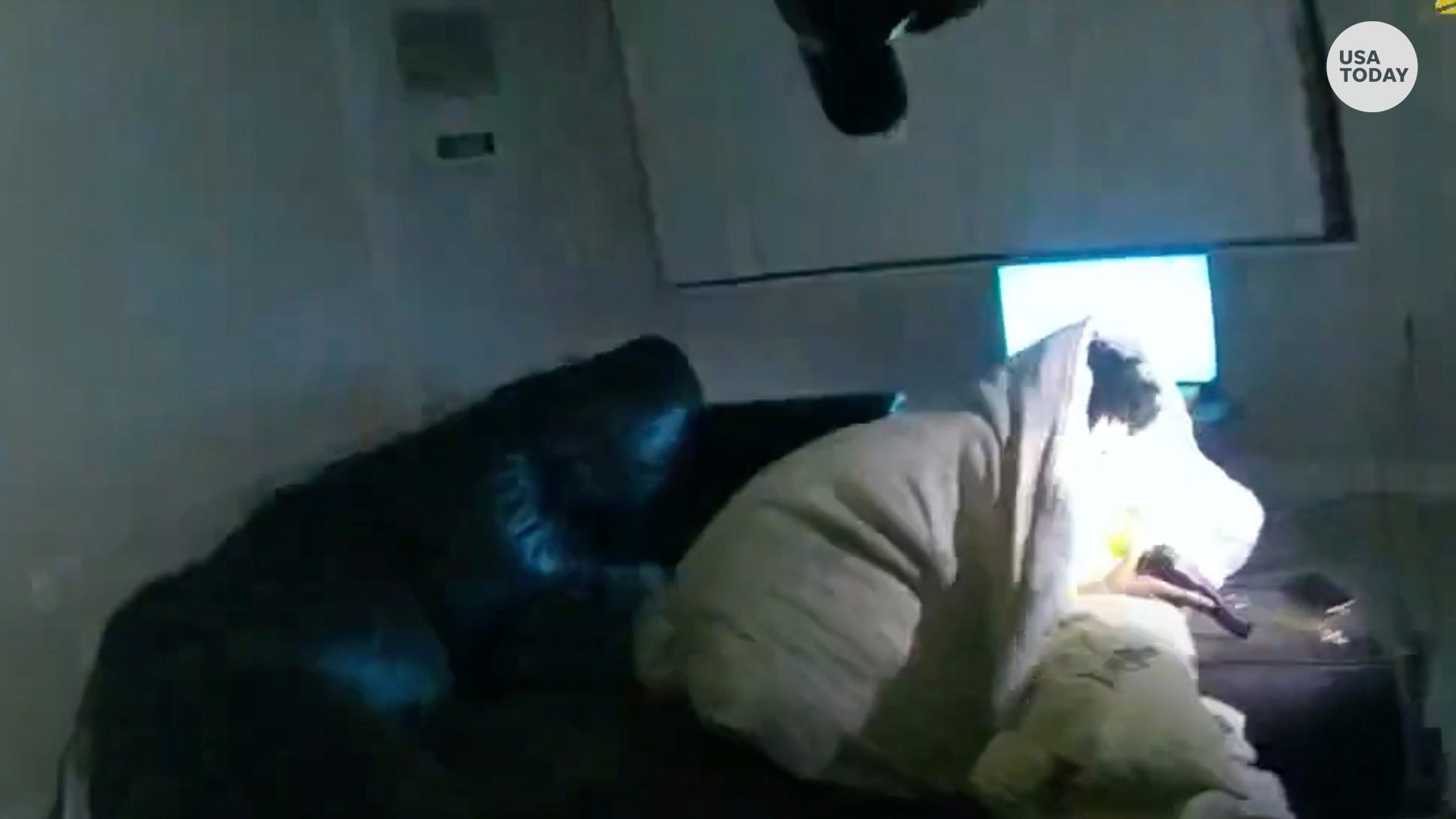Teen arrested in homicide investigation that led to Minneapolis police killing of Amir Locke – USA TODAY

A 17-year-old was arrested Monday in connection to a homicide investigation that led to the death of Amir Locke, who was shot and killed by a Minneapolis police officer last week during a predawn “no-knock” raid.
The teenager was identified as Locke’s cousin in court documents. Prosecutors have charged him with second-degree murder in the Jan. 10 fatal shooting of 38-year-old Otis Rodney Elder.
Charging documents provide some new details about the investigation that led to the fatal encounter with Locke, 22, who was not named in the search warrant. Officers from the Minneapolis Police Department were executing the warrant as part of the St. Paul homicide investigation, interim Police Chief Amelia Huffman said last week.
Police tracked the teenaged suspect and his associates to the Bolero Flats apartment building in Minneapolis, ultimately executing search warrants on three apartments: the one the teen lived in with his mother; another apartment two doors down connected to his associate; and an apartment belonging to the girlfriend of the teen’s brother seven floors down. Minneapolis police say the last apartment where Locke was killed was the only one with a “no-knock warrant.”
NO-KNOCK WARRANTS: A growing legacy of controversy, revised laws, tragic deaths
‘Didn’t even give him a chance’: Minneapolis police ‘executed’ Amir Locke, family says
The charging documents say that investigators had those three search warrants and probable cause “pick up and holds,” which would allow them to arrest the teen and two associates on suspicion of murder and aiding an offender after the fact.
Locke had been sleeping in the apartment, which prosecutors say the teen had visited and was a location well known to police. The teen’s brother and his girlfriend were in the apartment at the time.
Civil rights attorney Benjamin Crump, who is representing Locke’s parents, confirmed in a statement that the charged teenager is Locke’s cousin and that “all available information confirms that Amir was never a target of that investigation or those search warrants.”
Before 7 a.m. Wednesday, officers quietly opened the door with a key before loudly shouting a jumble of commands causing Locke, who was wrapped in a blanket on the couch, to stir, police body camera footage shows. Locke was holding a gun with his finger off the trigger when officer Mark Hanneman fired his weapon, striking him twice in the chest and once in the wrist.
The confrontation lasted less than 10 seconds.
After shooting Locke, investigators searched the apartment and seized a jacket they believe the teen wore after ditching a stolen car, as well as a bullet, the gun Locke had with him and marijuana, the charging document say. Attorneys for Locke’s family say he legally possessed the gun and had no criminal record.
The search warrant for the downtown Minneapolis apartment building will likely be unsealed after the teenager is arraigned and provide more information about his connection to the case.
He is currently being held in Ramsey County Juvenile Detention Center. The state asked the court for an order enabling it to prosecute the 17-year-old as an adult because “retaining the proceeding in juvenile court does not serve public safety.”
The shooting sparked multiple days of protest and has reignited criticism of the Minneapolis Police Department, which changed its policy on the use of no-knock warrants in 2020 to require officers announce their presence as they enter the premises and make periodic announcements while inside.
Crump called Locke the latest statistic of a “raid gone terribly wrong” and noted that the cousin was not present in the unit “where the no-knock warrant and Amir were both executed.” He called for the no-knock warrant technique to be banned.
Friday night, Mayor Jacob Frey imposed a moratorium on no-knock warrants.
Contact Breaking News Reporter N’dea Yancey-Bragg at nyanceybra@gannett.com or follow her on Twitter @NdeaYanceyBragg
Tami Abdollah is a USA TODAY national correspondent covering inequities in the criminal justice system. Send tips via direct message @latams or email tami(at)usatoday.com



